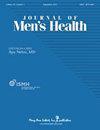新冠肺炎后在家工作对心理健康的影响:性别重要吗?
IF 0.6
4区 医学
Q4 Medicine
引用次数: 1
摘要
背景:COVID-19大流行导致了各种社会距离措施,例如强制在家工作,旨在减少SARS-CoV-2的传播。本研究的目的是比较COVID-19爆发后被迫在家工作的男性和女性对心理健康的影响。方法:本研究分析了在北京、成都、长沙和武汉四个城市进行的两轮调查收集的数据。本研究共分析了940份个人回复。采用多元线性回归和有序逻辑模型分析了被迫在家工作与男性心理健康状况恶化之间的关系。分析表明,被迫在家工作与男性心理健康状况恶化有关,但与女性无关。与未婚男性相比,已婚男性的心理健康状况更好,而女性的婚姻状况与心理健康之间的关系则相反。无论是男性还是女性,高职位人群的心理健康状况都较差。此外,在年轻、高收入男性和受过高等教育的女性中,被迫在家工作也与心理健康状况恶化有关。结论:2019冠状病毒病大流行的影响是深远的,并且可能持续多年。此外,选择在家工作的员工数量预计会增加。这项研究的结果可以为政策制定提供信息,以改善在家工作的员工的心理健康,特别关注被迫在家工作的男性。本文章由计算机程序翻译,如有差异,请以英文原文为准。
Mental Health Impacts of Working from Home after COVID-19: Does Gender Matter?
Background: The COVID-19 pandemic has led to various social distancing practices such as mandatory working from home, which aim to reduce the spread of SARS-CoV-2. The purpose of this study was to compare the mental health impacts between men and women being forced to work from home following a COVID-19 outbreak.Methods: This study analyzed data collected from two rounds of surveys conducted in four cities in China: Beijing, Chengdu, Changsha, and Wuhan. A total of 940 individual responses were analyzed in this study. Multiple linear regression and ordinal logistic models were used to analyze the relationship between being forced to work from The analysis showed that being forced to work from home was associated with worse mental health in men, but not among women. Married men reported better mental health compared with unmarried men, while the association between marital status and mental health was the opposite in women. Mental health was worse among those in higher job positions for both men and women. In addition, being forced to work from home was also associated with worse mental health among young, high-income men, and highly educated women.Conclusions: The impacts of the COVID-19 pandemic are far-reaching and amy persist for years. Furthermore, the number of workers who choose to work from home is expected to increase. The findings of this study can inform policy-making that will improve the mental health of employees working from home, with particular attention to men forced to work from home.
求助全文
通过发布文献求助,成功后即可免费获取论文全文。
去求助
来源期刊

Journal of Men's Health
Medicine-Urology
CiteScore
0.70
自引率
28.60%
发文量
153
审稿时长
10 weeks
期刊介绍:
JOMH is an international, peer-reviewed, open access journal. JOMH publishes cutting-edge advances in a wide range of diseases and conditions, including diagnostic procedures, therapeutic management strategies, and innovative clinical research in gender-based biology. It also addresses sexual disparities in health, life expectancy, lifestyle and behaviors and so on. Scientists are encouraged to publish their experimental, theoretical, and descriptive studies and observations in as much detail as possible.
 求助内容:
求助内容: 应助结果提醒方式:
应助结果提醒方式:


